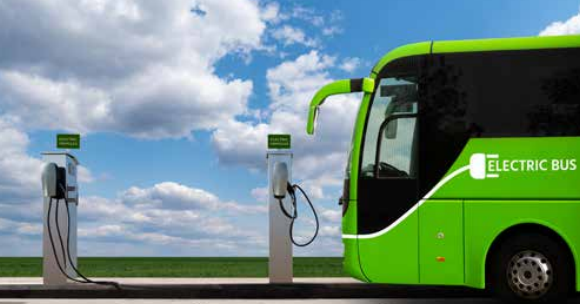Towards net-zero: The shift to electric mobility in Kenya is gaining momentum

The announcement by Kenya Power to start building charging ports for electric vehicles has renewed the conversation on e-mobility in Kenya. Beginning next month, Kenya Power is set to commence the construction of electric charging systems for homes, businesses, and the public across the country.
According to KPLC, the e-mobility network infrastructure system will ensure that e-mobility customers in Kenya can be served seamlessly countrywide, where Kenya Power has a grid presence.
KenGen has already installed an electric vehicle charging station in Nairobi, and plans are in high gear to ship in electric cars to test the station and help with data that is key to boosting policy legislation for E-mobility.
What is E-mobility
Electric mobility (e-mobility) refers to the use of Electric Vehicles (EVs) for mobility backed up by a robust information and communications technology (ICT) infrastructure. E-mobility encompasses all the different types of vehicles: cars, motorcycles, bicycles, 2 and 3 – wheelers, buses, boats, and electrified rail.
The shift to e-mobility is not peculiar to Kenya. There is a growing shift globally to clean mobility as part of efforts to combat climate change. The COP26 declaration on accelerating the transition to 100% zero-emission cars and vans, aims for 100% zero-emission vehicle sales by 2035 at the latest in leading markets and by 2040 globally. Europe wants to do away with fossil fuel-based vehicles by 2035. Similarly, Japan is transitioning to 100% electric car sales by 2035. Most used cars in Kenya are imported from Japan. Closer home, President Museveni of Uganda has encouraged Ugandans to shift to electric cars amid climate change concerns.
Current developments in Kenya
According to a report done in 2019 by the Ministry of Transport, Infrastructure, Housing, Urban Development & Public Works on electric mobility in Kenya, Kenya currently generates over 2700MW, out of which over 80% is renewable, against the demand of 1860MW. The excess 800MW could be utilised to power an electric transport fleet.
In terms of policy direction, the Kenya National Energy Efficiency and Conservation Strategy, 2020 has targeted increasing the share of electric vehicles in the transport sector to 5% of all imported cars annually by 2025. In particular, the strategy aims for incentives through lower import duty for electric cars, bicycles, and tuk-tuks, lower vehicle road taxes, and awareness-raising on EVs and e-mobility.
The Finance Act of 2019 reduced the excise duty for all vehicles with only an electric motor for propulsion (BEVs) from 20% to 10%.
The updated National Building Code requires owners of commercial buildings to ensure that at least 5% of the parking spaces in the building are dedicated for charging electric vehicles.
The Kenya Bureau of Standards has developed and adopted standards that apply to electric vehicles imported into the country covering specifications and testing procedures for safety aspects as well as performance and power consumption elements.
In November 2021, the Ministry of Transport, Infrastructure, Housing, Urban Development & Public Works issued a Terms of Reference for consultancy on the development of a national electric mobility policy for Kenya.
Barriers to uptake
According to the Development of Electric Mobility Policies in Kenya report, 2020, some barriers to e-mobility in Kenya include high upfront purchase costs, lack of vehicle model choice, technological concerns such as driving range, and customer information gaps.
Some of the proposed mitigation measures include:
- Financial access – given that EVs are more expensive than normal internal combustion engine (ICE) vehicles, access to credit and finance is critical in bridging the gap.
- Policy review – Like other developing countries, Kenya has experienced a relatively slow uptake of EVs. This is largely due to the absence of clear policy and industry support. Policies that provide upfront direct or indirect subsidies to overcome the initial cost barriers and tax incentives will drive EV uptake.
- Cost and reliability of electricity – Kenya Power and other energy service providers will play an essential role in supporting the coordinated rollout of the charging infrastructure.
- Charging infrastructure – Installation of charging infrastructure at regular intervals along major road networks has the potential to drive EV uptake by overcoming range limitations.
- Range Anxiety – Focus needs to be placed on the development of a charging network that is easy to use as the network of fuel stations.
Conclusion
There is a strong drive in a future where the general public will be increasingly turning to EVs as their primary household transportation. Proper policies, incentives, and regulations will help mainstream EVs in Kenya. The impact of consumer uptake of EVs will result in a more sustainable environment and be instrumental in reaching the de-carbonization of the transport sector and creating jobs.

